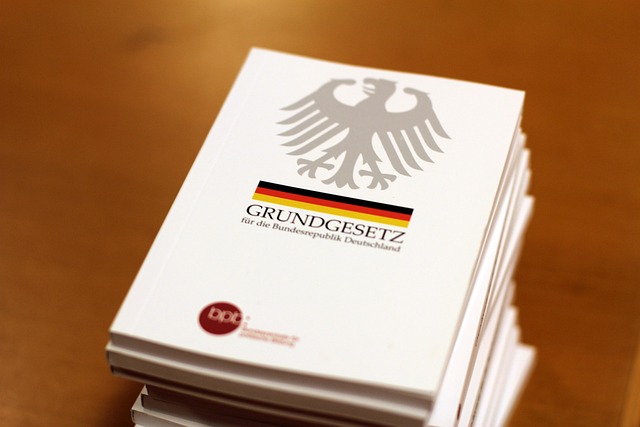Breach of contract disputes are common across industries, but navigating them is crucial for positive outcomes. Mediation offers a collaborative, flexible approach suitable for white-collar scenarios, while arbitration provides a streamlined, private solution for high-stakes cases. Court litigation offers swift resolutions and legal precedents but comes with lengthy, expensive processes. Alternative Dispute Resolution (ADR), including negotiation and collaborative law, offers efficient, cost-effective alternatives to traditional litigation for complex breach of contract disputes.
Breach of contract disputes are common in business transactions. Understanding the various litigation types available is crucial for navigating these conflicts effectively. This article explores key methods, from mediation as a collaborative approach to arbitration’s efficiency in complex cases. We delve into the pros and cons of court litigation and best practices for optimal outcomes. Additionally, we introduce alternative dispute resolution (ADR) options beyond mediation and arbitration, providing valuable insights on how to resolve breach of contract disputes successfully.
- Understanding Breach of Contract: Definition and Common Scenarios
- Mediation as a Stepping Stone to Resolving Contract Disputes
- The Role of Arbitration in Handling Complex Breach of Contract Cases
- Litigating in Court: Pros, Cons, and Best Practices for Breach of Contract Cases
- Alternative Dispute Resolution (ADR) Options Beyond Mediation and Arbitration
Understanding Breach of Contract: Definition and Common Scenarios

Breach of contract is a legal term that arises when one party fails to fulfill their contractual obligations, resulting in harm or loss to the other party. It’s a common scenario in various industries and can involve contracts related to business deals, employment agreements, real estate transactions, and more. Understanding this type of dispute is crucial for both individuals and organizations looking to protect their interests.
When a breach occurs, affected parties often seek legal recourse to resolve the issue. High-stakes cases involving significant financial losses or influential players in the philanthropic and political communities may require intricate strategies. Skilled attorneys play a pivotal role in guiding clients through these complex situations, aiming for winning challenging defense verdicts while ensuring fair and just resolutions. How to Resolve Breach of Contract Disputes involves careful assessment of the contract, evidence collection, and persuasive legal arguments to either enforce contractual rights or negotiate favorable settlements.
Mediation as a Stepping Stone to Resolving Contract Disputes

Mediation serves as a powerful tool for resolving contract disputes, particularly when it comes to breach of contract cases. It offers a more collaborative and efficient approach compared to traditional litigation paths, such as arbitration or jury trials. By involving a neutral third-party mediator, the respective business can facilitate open communication between disputing parties, fostering an environment conducive to negotiation and mutual agreement.
This alternative dispute resolution (ADR) method is especially beneficial in white collar defense scenarios, where complex contracts are often at play. Unlike jury trials, mediation allows for more flexibility and privacy, encouraging creative solutions that might not be readily apparent through adversarial proceedings. The mediator’s role is to guide the process, ensuring all parties have a chance to present their cases and explore potential compromises, ultimately aiming to reach a mutually agreeable outcome without the need for lengthy and costly court battles.
The Role of Arbitration in Handling Complex Breach of Contract Cases

Arbitration offers an efficient and private alternative to resolving complex breach of contract disputes, particularly in high-stakes cases where parties may have significant financial interests at stake. This process allows for a more streamlined approach compared to traditional litigation, enabling businesses to navigate all stages of the investigative and enforcement process with greater agility. By relying on skilled arbitrators who possess expertise in contract law, respective business can ensure that their case is heard by someone well-versed in the nuances of their industry.
Furthermore, arbitration provides flexibility in terms of procedural rules and evidence presentation, offering a more tailored approach to each dispute. This adaptability is especially beneficial for unique or intricate contracts, where standard legal procedures may not fully address the complexities involved. Through arbitration, parties can maintain control over the outcome while also reaping the benefits of a faster, less resource-intensive resolution compared to lengthy court battles.
Litigating in Court: Pros, Cons, and Best Practices for Breach of Contract Cases

Litigating in court can be a viable option for resolving complex breach of contract disputes. Pros include the opportunity to present evidence and arguments directly to a judge or jury, potentially leading to a swift resolution and a clear legal precedent. Additionally, courts provide a structured environment where all parties are treated equally, ensuring fairness throughout the process.
However, there are also significant drawbacks. Court cases can be lengthy and expensive, straining resources for both plaintiffs and defendants. Furthermore, outcomes are unpredictable, with the risk of an unfavorable verdict even after strong arguments have been made. For high-stakes cases involving substantial financial losses or critical business relationships, these cons become particularly problematic. To mitigate risks, it’s crucial to gather comprehensive evidence, consult legal experts familiar with respective business practices, and prepare robust strategies tailored for his clients’ specific needs, aiming for an efficient resolution that protects their interests.
Alternative Dispute Resolution (ADR) Options Beyond Mediation and Arbitration

In addition to mediation and arbitration, Alternative Dispute Resolution (ADR) offers several other avenues for resolving conflicts outside of traditional court proceedings. One such method gaining popularity is negotiation. This process involves direct communication between the disputing parties with the goal of reaching a mutually agreeable solution. A trained mediator can facilitate this negotiation, ensuring both sides have their say and helping them find common ground. Negotiation allows for flexibility and creativity in crafting resolutions tailored to the unique needs of each case, making it particularly effective for complex breach of contract disputes where achieving extraordinary results is paramount.
Another powerful ADR tool is collaborative law, where attorneys work together with clients to reach an agreement while avoiding courtroom battles. This approach fosters transparency and cooperation, leading to a complete dismissal of all charges in many instances. While jury trials may be appealing to some, as they offer public accountability, ADR methods provide faster, more cost-effective alternatives that can still result in substantial resolutions without the overhead of formal litigation.
Understanding breach of contract scenarios and knowing how to resolve them is essential for businesses. From mediation to arbitration and litigating in court, various options exist. Each method has its pros and cons, with some offering quicker resolutions or more control over the process. Alternative dispute resolution (ADR) techniques, such as negotiation and collaboration, can also be effective. By familiarizing themselves with these litigation types, individuals and businesses can make informed decisions to navigate breach of contract disputes successfully.






